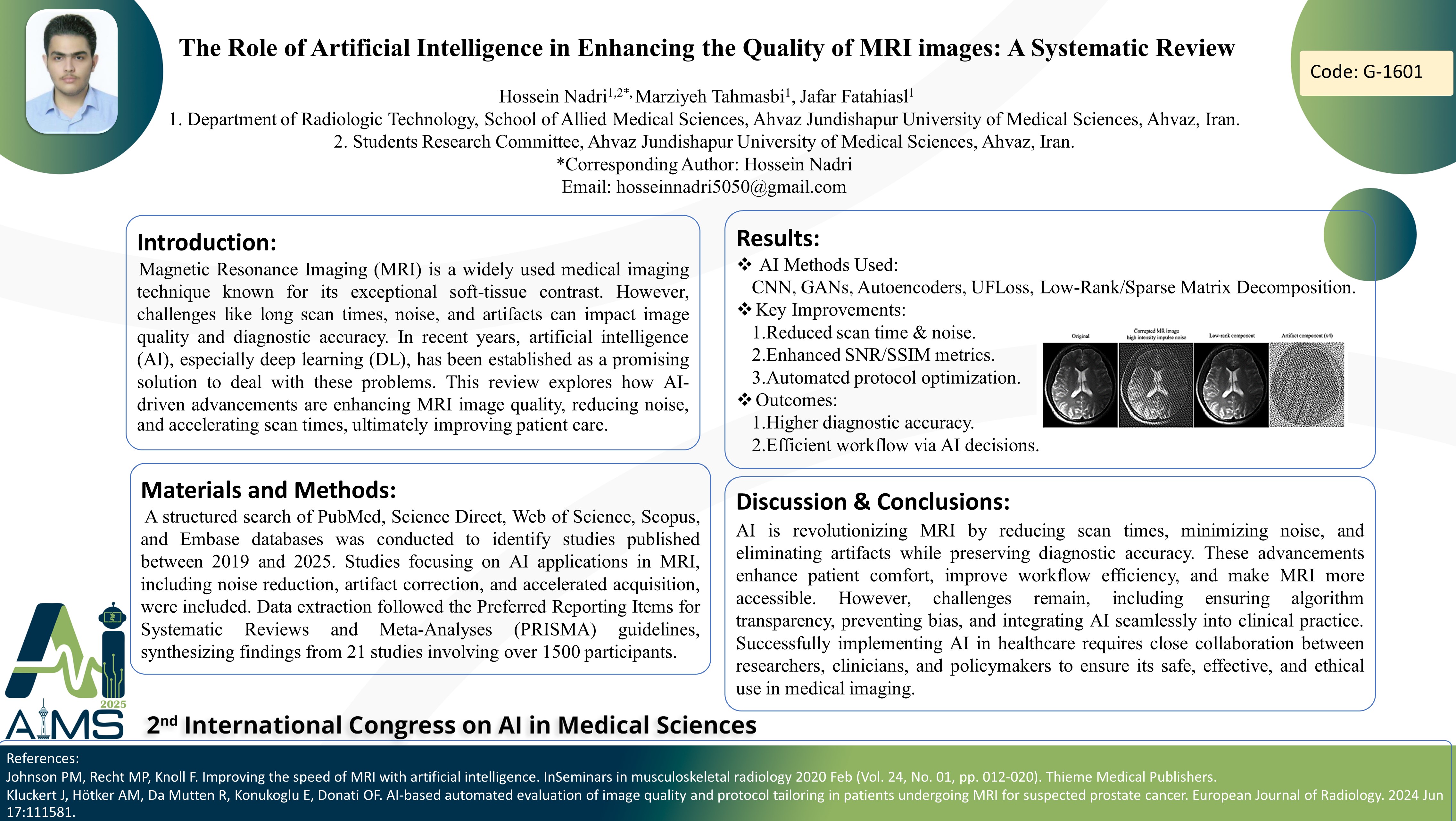The Role of Artificial Intelligence in Enhancing the Quality of MRI images: A Systematic Review
Code: G-1601
Authors: Hossein Nadri * ℗, Marziyeh Tahmasbi, Jafar Fatahiasl
Schedule: Not Scheduled!
Download: Download Poster
Abstract:
Abstract
Background and aims: Magnetic Resonance Imaging (MRI) is a widely used medical imaging technique known for its exceptional soft-tissue contrast. However, challenges like long scan times, noise, and artifacts can impact image quality and diagnostic accuracy. In recent years, artificial intelligence (AI), especially deep learning (DL), has been established as a promising solution to deal with these problems. This review explores how AI-driven advancements are enhancing MRI image quality, reducing noise, and accelerating scan times, ultimately improving patient care. Method: A structured search of PubMed, Science Direct, Web of Science, Scopus, and Embase databases was conducted to identify studies published between 2019 and 2025, using the following keywords: "Artificial Intelligence", "Magnetic Resonance Imaging", "Image Reconstruction", "Image Quality", "MRI Artifacts". Studies focusing on AI applications in MRI, including noise reduction, artifact correction, and accelerated acquisition, were included. Data extraction followed the Preferred Reporting Items for Systematic Reviews and Meta-Analyses (PRISMA) guidelines, synthesizing findings from 21 studies involving over 1500 participants. Results: AI methods such as deep learning models based on convolutional neural network (CNN), Unsupervised Feature Loss (UFLoss), Generative Adversarial Networks (GANs), Autoencoders (AE), and Low-Rank & Sparse Hankel Matrix Decomposition have significantly reduced scan times by accelerating image reconstruction and denoising processes. These methods also correct artifacts and enhance diagnostic accuracy and image quality by improving metrics such as signal-to-noise ratio (SNR) and structural similarity index measure (SSIM). AI has also shown that it can improve MRI protocols by making decisions automatically, like figuring out whether certain sequences are needed. This makes the workflow more efficient. Techniques like artifact suppression through advanced loss functions have further contributed to image quality enhancements. Conclusion: AI is revolutionizing MRI by reducing scan times, minimizing noise, and eliminating artifacts while preserving diagnostic accuracy. These advancements enhance patient comfort, improve workflow efficiency, and make MRI more accessible. However, challenges remain, including ensuring algorithm transparency, preventing bias, and integrating AI seamlessly into clinical practice. Successfully implementing AI in healthcare requires close collaboration between researchers, clinicians, and policymakers to ensure its safe, effective, and ethical use in medical imaging.
Keywords
Artificial Intelligence,Magnetic Resonance Imaging, Image Quality
